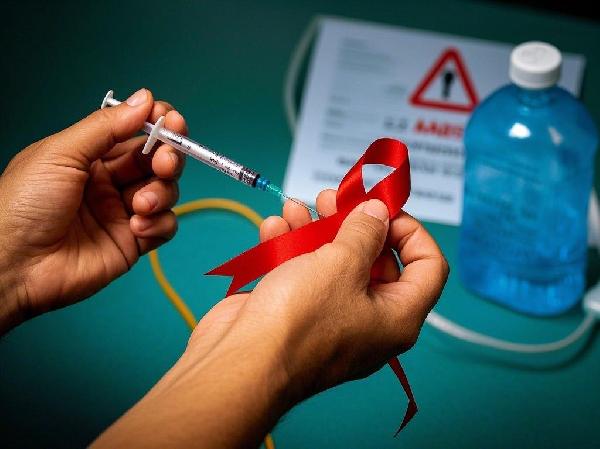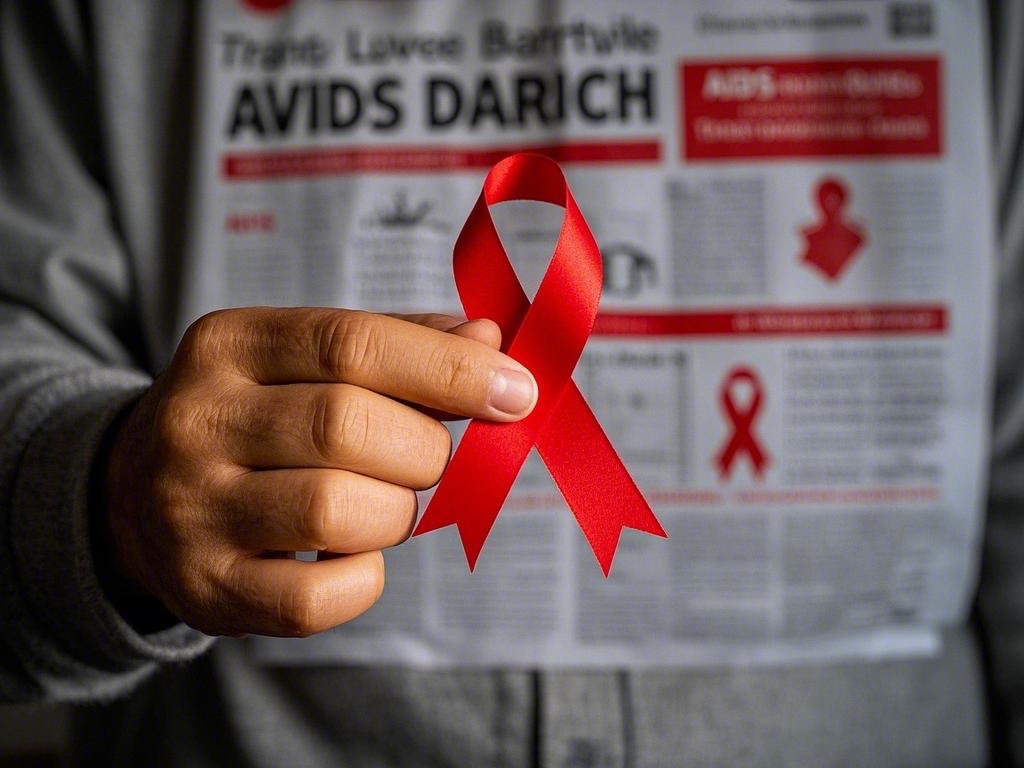What are the preventive methods for HIV infection? In our country, the detection of AIDS is still an iceberg phenomenon, with most HIV carriers hiding in the normal population and spreading the virus intentionally or unintentionally. Early detection and intervention can prevent or reduce secondary transmission, and early treatment can control and maintain low replication of HIV, delay or prevent its destruction of the immune system, and significantly postpone the onset and death from AIDS.

Since acquired immunodeficiency syndrome is mainly transmitted through sexual contact, injection, blood or blood products, and perinatal routes, with injection drug use and sexual transmission being particularly severe, the principle of prevention is to avoid direct contact with the blood, saliva, tears, milk, urine, feces, semen, and vaginal secretions of HIV-infected individuals. The following preventive measures are for reference.
Avoid sexual contact to infect with HIV.
Both anal and vaginal intercourse can cause damage to the rectal or vaginal mucosa, allowing the HIV in semen and vaginal secretions to enter the bloodstream and infect the other party. Strengthen health education on sexual knowledge and behavior related to HIV and AIDS, maintain personal integrity, and prevent sexual contact with HIV carriers. Resolutely ban and severely crack down on prostitution and other immoral behaviors.
Prevent transmission through injection.
Strictly prohibit drug use, especially injection drug use. Strengthen drug enforcement and rehabilitation efforts, reinforce drug harm education, and eliminate drug harms. Do not share needles, syringes, and drugs, and use disposable syringes and acupuncture needles. Prevent injury from HIV-contaminated needles or instruments.
Strengthen the management of blood products.
Enhance the management of the blood product market. All blood and plasma products should be collected, tested, and supplied by qualified blood stations. Illegal blood collection and supply are strictly prohibited. Relevant law enforcement departments should resolutely eradicate underground blood stations and crack down on underground blood bosses and blood lords. Conduct strict physical examinations for blood donors, including HIV antibody testing. High-risk groups should be prohibited from donating whole blood, plasma, organs, tissues, or semen. Strictly prohibit the import of various blood products from abroad, including whole blood, plasma, human albumin, gamma globulin, and various blood components.
Cut off mother-to-child transmission.
Female HIV carriers, especially HIV-1 carriers, should try to avoid pregnancy to prevent mother-to-child transmission. Since HIV can be transmitted to infants through breastfeeding, HIV-infected nursing women should not breastfeed but should use artificial feeding instead. Pregnant women with AIDS with CD4+ T lymphocytes >200/μl who use AIT before delivery and during delivery and for infant treatment have a certain protective effect.
Strengthen disinfection and isolation measures.
Items or instruments contaminated with blood or body fluids can be wiped or soaked with effective disinfectants, such as freshly prepared 500×10-6 to 5000×10-6 (1:10 to 1:100 dilution) sodium hypochlorite solution or 1:10 diluted chlorinated lime solution. Waste items used by patients should be disinfected before further disposal or incineration. Avoid direct contact with patients' blood or body fluids; wear gloves and isolation gowns. In case of accidental contamination with blood or body fluids, immediately wash and disinfect thoroughly.
Strengthen education and propaganda work.
Enable the general public to have a correct understanding of acquired immunodeficiency syndrome. Pay attention to personal hygiene and do not share toothbrushes, razor blades, utensils, basins, towels, and other items.
Strengthen professional training.
Relevant professional knowledge training should be provided to epidemic prevention and medical institution personnel to improve professional levels, standardize diagnosis and treatment, including the promotion of international standard treatment plans, and formulate treatment guidance plans suitable for rural areas in our country.
HIV vaccine.
Developing an effective HIV vaccine may be the hope for eradicating acquired immunodeficiency syndrome. However, due to the high mutation rate of HIV genes, the integration of viral genes into host cells, and the direct invasion of the host's immune system by the virus, the difficulty of developing HIV vaccines is greatly increased. Although a lot of human and material resources have been invested at home and abroad, long-term research and various vaccine studies, such as inactivated vaccines, attenuated vaccines, subunit vaccines, nucleic acid vaccines, neutralizing antibody vaccines, etc., there is still no successful vaccine on the market. Currently, some more mature vaccines abroad are undergoing preclinical or clinical trials, but most are for B subtype HIV strains. The prevalent strains in our country are mainly A, B, B', C, and E subtypes, so it is still unknown whether vaccines developed abroad are suitable for our country. Therefore, it is extremely important to develop HIV vaccines based on prevalent strains in our country. However, from the current situation in our country, there is still a long way to go.
Strengthen monitoring of acquired immunodeficiency syndrome.
Due to the extremely uneven economic and cultural development across our country; most people, including a considerable number of medical personnel, lack understanding of acquired immunodeficiency syndrome knowledge; changes in people's sexual attitudes, cohabiting casually, multiple sexual partners; the resurgence of prostitution and other immoral phenomena; the gradual spread of drug trafficking; the extremely weak medical conditions at the grassroots level; and the very uneven monitoring work of medical, health, and epidemic prevention institutions at all levels, etc., the spread of acquired immunodeficiency syndrome in our country has caused the HIV infection rate and the incidence of acquired immunodeficiency syndrome to enter a period of rapid growth, and the huge population base of our country means that its development trend may have a significant negative impact on social, political, and economic life. Therefore, strengthening the monitoring of acquired immunodeficiency syndrome in our country and improving the monitoring network so that the country can accurately grasp changes in the epidemic situation is very important for the country to formulate corresponding laws and regulations and take timely and effective prevention and control measures.
(1) Implement and strengthen the epidemic reporting system: Especially the epidemic reporting of grassroots medical and health institutions should be implemented.
(2) Strengthen monitoring of high-risk groups: The current key monitoring objects in our country include: ① People who have used foreign blood products; ② People who have had sexual relations with foreigners; ③ Chinese students, labor personnel, long-term residents, and visitors abroad; ④ Long-term foreign residents in China, foreign tourists, foreign students, and diplomatic personnel in China; ⑤ Prostitutes, prostitutes, and drug users; ⑥ People who have had close contact with HIV carriers and acquired immunodeficiency syndrome patients.
(3) Strengthen border quarantine: Prohibit the entry of HIV carriers and acquired immunodeficiency syndrome patients.
























